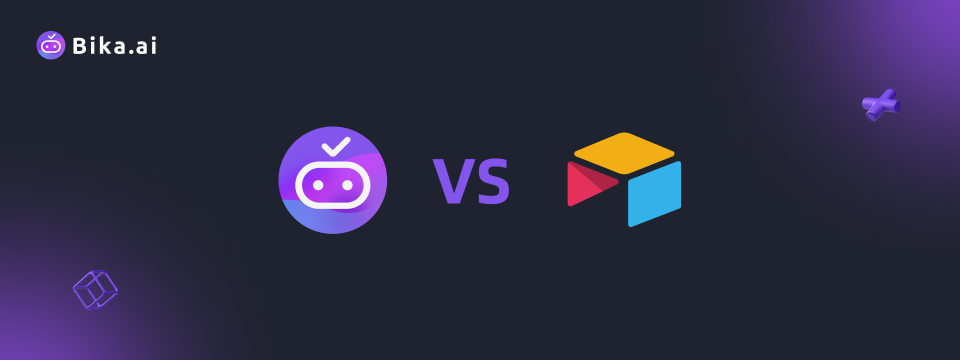
Bika.ai vs Airtable: To Tracking ticket status
Challenges in Tracking Ticket Status and the Emerging Alternatives
In the complex world of project management, tracking ticket status is often a crucial yet challenging task. Many teams turn to traditional tools like Airtable to handle this, but the landscape is evolving. Enter Bika.ai, a new contender with an AI Project Issues and Tickets template that promises to revolutionize the way we manage project tickets.
Airtable vs Bika.ai: Key Features At a Glance
| Feature | Airtable | Bika.ai |
|---|---|---|
| Pricing | Free provided, paid plans from $20/user/month | Free provided, paid plans from $9.99/user/month |
| Platform Type | No-code database | No-code AI automation database |
| Ease of Use | Base structure is geeky for non-tech users | Directory tree is easy to use and user-friendly for general users |
| Records per Database | Up to 125,000 records per base for Business plan | Up to 1,500,000 records per database for Team plan |
| Automation | Basic automation capabilities with limited triggers and actions | Advanced automation capabilities with extensive triggers and actions |
| Template | Templates don’t include automation capability; no automation publish and share | plenty of plug-and-play AI automated templates with preset content; supports automation publish and share |
| Storage | 100 GB of attachments per base | 800 GB per space |
| API | Limited APIs | API-first platform making every feature an integration endpoint for automation |
Bika.ai's Focus on Tracking Ticket Status
Bika.ai has dedicated significant research and gathered practical feedback on the Tracking ticket status scenario use case. This has allowed them to tailor their solution for the relevant audience and market, ultimately enhancing efficiency and saving precious time.

The Value of Tracking Ticket Status Automation for Team Collaboration
The automation of Tracking ticket status brings a plethora of benefits to team collaboration. It leads to increased efficiency, significant time savings, a reduction in errors, customization options, convenience, and cost savings. Professionals such as project managers, developers, QA engineers, product owners, customer support representatives, and business analysts can all reap the rewards. Moreover, this template finds application in various scenarios, including but not limited to tracking project tickets, requirements, and bugs.

How to Use Bika.ai's AI Project Issues and Tickets Template
Use AI automation to manage your project issues, tickets, requirements, and bugs. By automatically collecting, summarizing, and prompting actions, you can manage project progress more effectively and provide timely feedback to users on development progress.
How to Switch From Airtable to Bika.ai
Switching from Airtable to Bika.ai is a straightforward process:
- Export your data from Airtable in a CSV or Excel format.
- Sign up for Bika.ai and use its data import tools to transfer your data.
- Set up your automation templates in Bika.ai to begin experiencing the benefits of AI automation immediately.

Recommend Reading
- AI Data Automation with Bika.ai: Unlocking New Potential for B2B AI CRM in analyze customer buying habits
- Boost Your Brand Visibility with LinkedIn Post Automation by Bika.ai
- The Ultimate Solution for B2B Sales Teams: Bika.ai's B2B AI CRM
- Bika.ai vs Airtable: To user case sharing
- Rotating Duty Reminder(Wecom): Airtable Alternative to Team collaboration communication
Recommend AI Automation Templates




